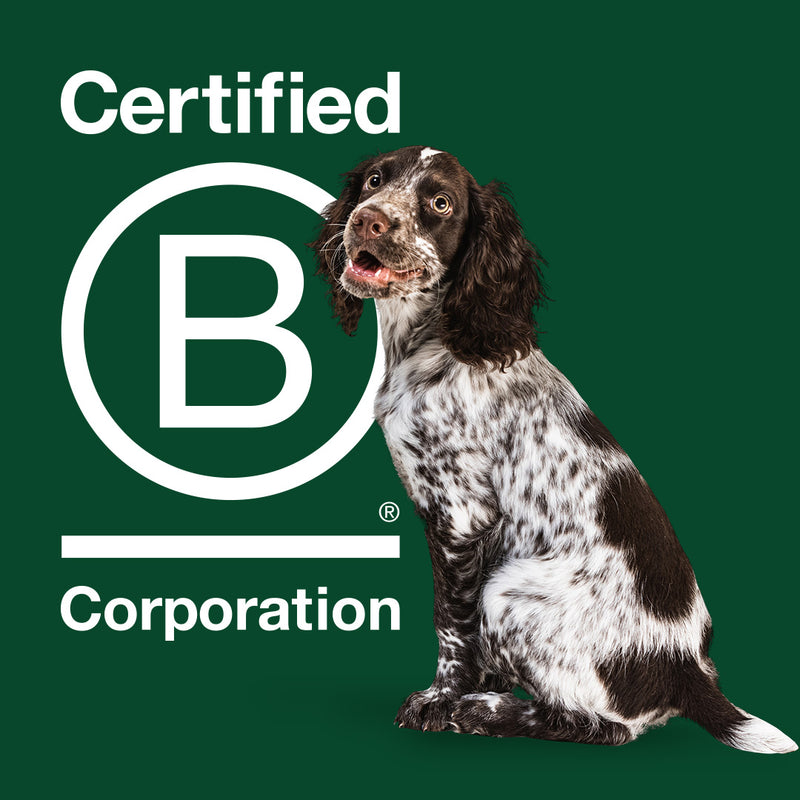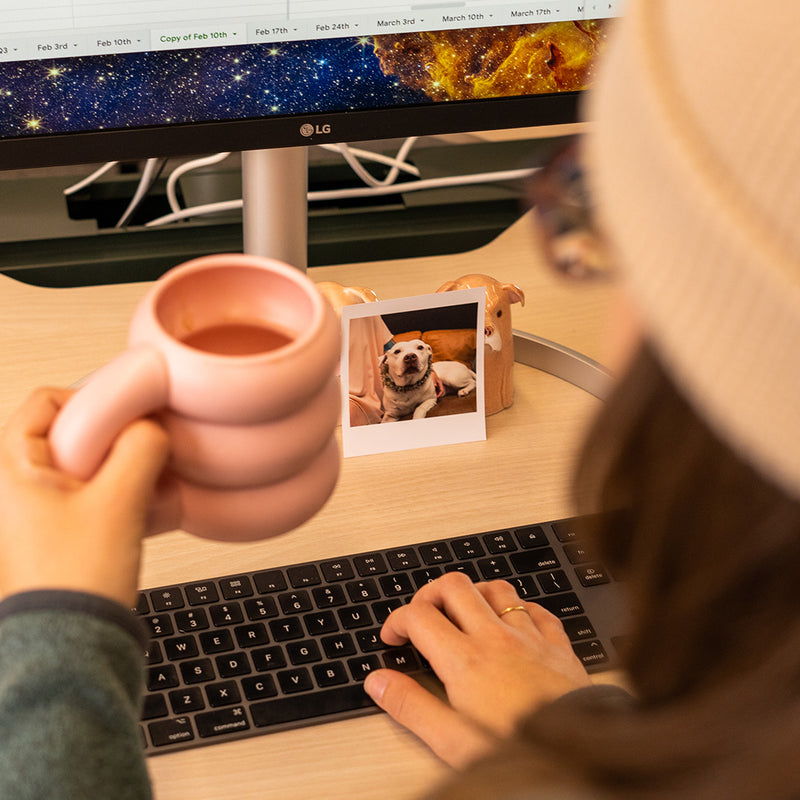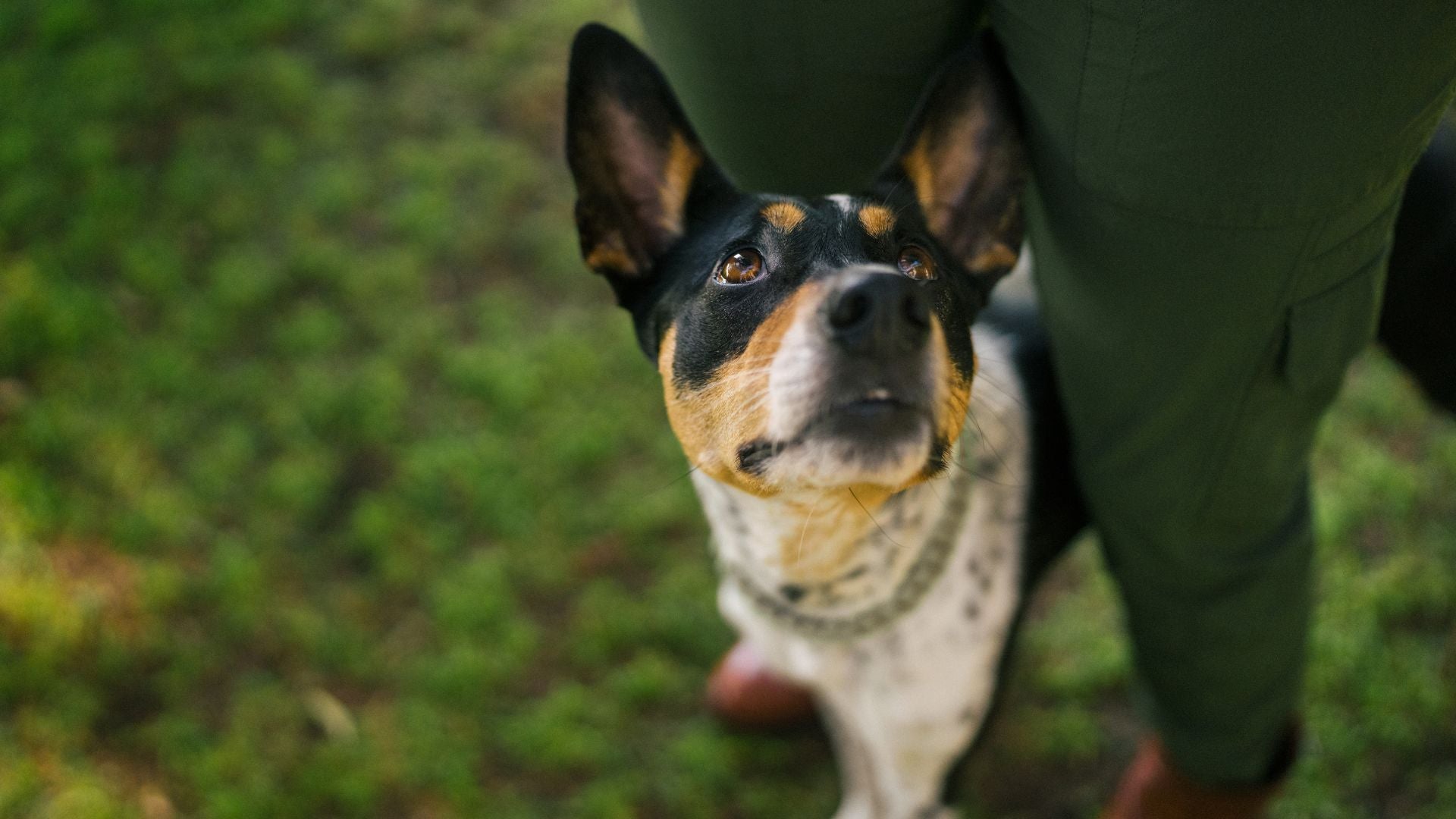Move over squeaky toys and knotted ropes! The newest doggy craze might just be chasing... carrots?
Believe it or not, this crunchy orange veggie can be a delicious healthy alternative to fatty, store-bought treats.
While your dog might not trade belly rubs for a beta-carotene boost, carrots offer many benefits beyond just a delightful crunch. Let's dig into why this root vegetable might become your pup's next favorite chew toy (and explore some of the unexpected health perks hiding inside).
Can Dogs Eat Carrots?
Yes, dogs can eat carrots in moderation. They can be a healthy and nutritious treat for your pup because they’re particularly high in fiber, which can benefit their digestive system.
We’ll explore more benefits of carrots below and how to give them to your dog safely.
Nutritional Value of Carrots
“Carrots provide fiber, vitamin C, and some other nutrients,” explains Isa-May Pellerin, a certified animal health technician.
Carrots might seem like a simple snack, but there are many different vitamins packed into this humble veggie:
- Vitamin A: Carrots are known for their abundance of beta-carotene, which the body converts into vitamin A. This nutrient plays a role in maintaining healthy vision, which may be why our parents used to say they could give us “night vision!” 😎 Vitamin A also plays a role in supporting the immune system.
- Vitamin K1: While not as plentiful as vitamin A, vitamin K1 is also found in carrots. It’s important for blood clotting and bone health.
- Vitamin B6: This vitamin is involved in energy metabolism and red blood cell production.
- Vitamin C: Like many vegetables, vitamin C is found in carrots. This vitamin supports the immune system as an antioxidant.
There are also many minerals and nutrients found in carrots, including:
- Fiber: Carrots are exceptionally high in fiber, which can help with digestion and regulate your dog’s bowel movements. Fiber can also make your dog feel fuller for longer, helping with weight management.
- Potassium: This essential mineral helps with hydration by regulating how water moves throughout the body. It’s also vital for helping with muscle function.
- Calcium: Carrots also contain a small amount of calcium, which can help improve your dog’s teeth and bones.
Carrots are also mostly water, which helps contribute to their low-calorie count. While this doesn’t take away from their nutritional value, it does mean that your dog won’t get a huge nutritional boost from a single carrot.
4 Health Benefits for Dogs
Beyond the satisfying crunch, carrots offer several health benefits for dogs, too. Even though these haven’t been readily studied, we can discern some of the benefits from their nutritional content. Here’s how carrots may contribute to your pup’s well-being:
1. Digestive Aid
The good source of dietary fiber in carrots acts as a natural digestive aid for dogs. Fiber helps regulate bowel movements, promoting regularity and preventing constipation. Additionally, the fiber content in carrots can help keep your dog feeling fuller for longer, potentially aiding in weight management.
It can also help improve your dog’s bowel movements, making them more regulated. Their poops may even be firmer and easier to pick up with poop bags, so be sure to stock up on bags!
2. Weight Management
When it comes to keeping your dog in shape, Isa notes, “Carrots can be good for dogs on a diet that need to have lower-calorie snacks, but they still have to be calculated into the daily caloric intake as they are sugary.”
3. Dental Health
You may be wondering if you can put down the doggy toothbrush in favor of a carrot? But the truth is that carrots are not abrasive enough to remove plaque from your dogs’ teeth. Instead, it’s a good idea to continue brushing your dog’s teeth to promote good dental hygiene.
4. Vision Support
Carrots are rich in beta-carotene, which the body converts to vitamin A. Vitamin A plays a crucial role in maintaining healthy vision in dogs. It helps with night vision and protects the cornea, the outermost layer of the eye. That said, if your dog consumes a commercial diet, the chance of a vitamin A deficiency is very low.
Safety Considerations
Isa notes that carrots are generally safe but she recommends you check with your vet if carrots are an appropriate treat for your pet, as the carbohydrate content can be unhealthy for some conditions.
Keep in mind; there are a few potential risks you may want to keep in mind:
- Choking Hazards: Isa explains, “a whole carrot can pose a choking risk, so pets should be monitored, or carrots should be cut into smaller pieces to avoid this.”
- Allergies: While very uncommon, dogs can be allergic to carrots. Signs of an allergic reaction include diarrhea, vomiting, and itchy skin. You shouldn’t continue to feed your dog carrots if you notice any of these signs.
- Digestive Issues: Some dogs cannot handle the higher fiber content in carrots. Always start with a smaller amount and work your way up.
Safe Serving Tips for Carrot-Loving Canines
When preparing carrots for your pup to enjoy, it’s a good idea to follow these safety tips:
- Cut It Up: Always cut carrots into small, bite-sized pieces to prevent choking. Grating or mashing carrots is also a great option for smaller dogs.
- Start Slow: Introduce carrots slowly, starting with very small pieces and seeing how your dog gets on with them.
- Wash It First: Always wash carrots thoroughly before feeding them to your dog to remove dirt and other pesticides.
- Moderation is Key: Treat carrots as you would a regular dog treat. Try to only give on occasion.
How to Incorporate Carrots into Your Dog’s Diet
Now that you know the benefits and safety considerations of carrots for dogs, let's explore some fun ways to add this crunchy treat to your pup's routine!
- Earth Rated Treat Toy: Consider filling an Earth Rated Treat Toy with your dog’s regular kibble and some chopped up carrots. Additionally, you can also add a little to yogurt and use it as a filling for the Enrichment Toy.
- Raw Carrot Sticks: For larger dogs who can handle chewing on tougher food, you can offer a raw carrot stick. Keep an eye on your pup after giving them the stick, as larger chunks can break off and pose a choking hazard.
- Frozen Fun: Freezing small carrots can be a refreshing, stimulating summer treat. The cold texture is well-loved by many dogs, providing a fun challenge for them to chew on.
- DIY Dehydrated Treats: Slice carrots thinly and dehydrate them in the oven for a crunchy homemade treat.
The amount of carrots your dog should consume depends on their size. A good rule of thumb is to feed them no more than 10% of their daily calories as treats. For small dogs, this often means around 1 or 2 small carrot pieces a day. Larger dogs may be able to eat closer to 3 tablespoons of carrots.
3 Carrot Recipes for Dogs
1. Treat Snack: Crafty Carrot Crisps
Dehydrate thinly sliced carrots in your oven. Start by preheating your oven to 150°F while you slice the carrots very thinly. Then, arrange them on a baking sheet lined with parchment paper. Cook them for about 4 to 6 hours until they are dry and crispy.
2. Pumpkin & Carrot Puree
This yummy puree works well on a lick mat or inside an interactive toy. Mix one cup of cooked, mashed carrots with ½ cup of pumpkin puree. Pop the puree into the toy and then freeze. Your dog can enjoy the taste while it thaws.
3. Hearty Veggie Stew with Chicken and Brown Rice
You can provide more of a dinner for your dog by mixing carrots, brown rice, low-sodium chicken broth, and chicken. Start by cooking around one cup of carrots in a large pot. Then, add the chicken broth and bring it to a boil. Lower the heat and simmer for around 10 minutes or until the carrots are tender.
Next, add cooked and shredded chicken and cooked brown rice to the pot. Stir everything to combine and let it cool before serving it to your pup.
Follow us on Instagram and share your very own delicious doggy carrot recipes!












